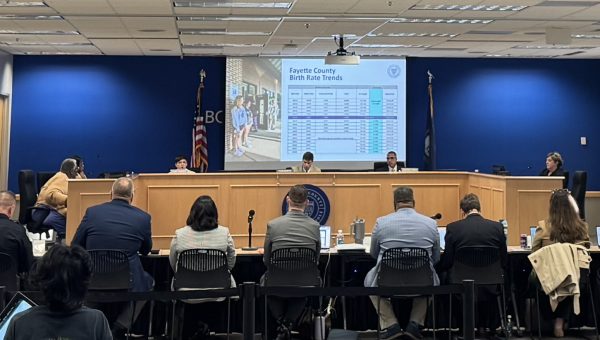Tips for Testing
With the semester coming to a close, finals are a big part of getting the grade you want. For some people, test taking seems natural, while for others it is more challenging. Everyone in high school has challenging tests – mid-terms, finals, ACT, SAT – luckily there are efficient ways to get better results.
Many students barely have time to study after school, given a part-time job, homework and projects. Ways to reduce studying time include using extra study materials and meeting your physical needs by getting enough rest and eating each morning.
Some classes require ma significant amount of studying, so students must find ways to study smart in a brief amount of time. This can be accomplished through extra workbooks, flashcards and other learning materials. Some of these items are free while others have a minimal charge.
“Workbooks are definitely helpful. They provide topics to cover but more importantly tests to take in full before the actual ACT or SAT. The Official SAT Study Guide is perfect for SAT Prep,” said MSTC senior Ryan Draper. “A tutor is also useful, though not necessary, because they allow the student to understand why they are wrong, so that they can improve moving forward.”
For some students, though, workbooks and bulky learning materials seem like more of a burden. Other options, like flashcards or Quizlet, can be very helpful when you have an extra five minutes in class. It’s surprising how much material can be learned by scrolling through flashcards.
“Flashcards vary in impact based upon learning style,” said Draper.
Perhaps the quickest choice isn’t always be the best choice. Studying is obviously an important factor when trying to make good test grades, but keeping up with your physical needs is just as important. Jennifer Cutler from Global Post talks about the benefits of eating healthy food in her article “How Does Healthy Food Affect Test Scores of Students?”
“Children eating an unhealthy diet or not getting enough food triggers an overproduction of cortisol, the stress hormone, which can impair memory, learning, concentration and impulses,” said Cutler.
In addition to eating right, getting enough rest is also important to maintain good test grades.
According to the American Academy of Sleep Medicine (AASM), success on exams in the classroom is directly correlated with sleep.
Dr. Kohler, the Medical Director of Florida Sleep Institute agrees with the AASM.
“A student’s performance is dictated by the amount of sleep he or she gets,” said Kohler. “A teen who regularly gets enough sleep will have improved academic performance. Sleep deprivation increases the incidence of academic failure.”
With the stress of wanting to score well on a test, overtaking students’ minds, it makes it very easy to skip breakfast as you run out the door or stay up late cramming for a test. However, you won’t be as prepared as if you had opted for the sleep and a good breakfast before an exam.
Junior Will Thurmond is clear on the importance of both.
“I always seem to do better when I eat and sleep the night and morning before. I think the problem kids have is trying to cram a lot before a test,” said Thurmond. “They think it will help them know more, but it makes them stay up later, so this takes away from their test grades.”
Many students depend on their test results to help keep or raise their overall grade. Getting that extra percent by studying more efficiently with your time as well as taking care of your physical needs of sleeping and eating is very important.


























